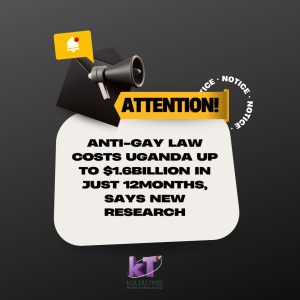By Leila Billing
I’ve been reading a lot of advice for leaders on how they can support their organisations to navigate Covid-19. Here’s a whistle-stop tour of the mainstream guidance I’ve read on blogs, websites and social media: stoicism is key; get better at running virtual meetings; be courageous; stay positive; remember that ‘from crisis comes opportunity’. While I’m not denying that each of these pieces of guidance has its merits, I wonder whether, cumulatively, this is really the type of leadership that we need in these fractured times. What if leaders of all stripes, from diverse sectors, started to follow the kinds of feminist leadership approaches that have been championed by activists from all over the world for decades. How might this type of leadership help us to navigate our way through these splintered, uncertain times?
Flex your instersectional analysis
Feminist leadership understands that we’re only as safe — or empowered — as the most vulnerable among us. An intersectional analysis helps us to understand how the virus disproportionately impacts specific groups of people, who, because of their intersecting identities, face unique forms of burden. Now more than ever, we must centre our work around the necessity for equity, empowerment, inclusion and justice for all. Feminist leaders must consider how we can step up their work for communities of colour, immigrants and refugees, incarcerated people and the homeless. If we have a platform, we must use it. If we have credibility and legitimacy, we need to share it. If we have access to power holders, we can open doors for others. We must be vigilant, however, that we aren’t doing this in a way that shifts recognition and attention away from affected communities, who should not only be listened to, but centred in the leadership of this work. I recently heard some disability activists complaining about feeling ‘co-opted’ and their expertise being extracted by so-called ‘allies’ in the Covid-19 response. In trying to show solidarity, feminist leaders should be mindful of all the good work that has gone on before we came on the scene and put aside any desire for our own social recognition.
Make the invisible, visible
At its heart, so much of feminist leadership is about making undemocratic, untransparent and asymmetrical power relations and dynamics visible, and then trying to transform or disrupt them. This means taking a clear-eyed look at the economic, social and political systems that are producing and reproducing the inequalities that the virus is throwing into stark relief. Feminist leaders need to shine a light on the oppressive structures that have created a situation where basic health coverage for survival is a pipe dream for approximately 50% of the world; where the gig economy has meant that there is a lack of sick leave provision for so many; and where the presence of a pandemic means there are likely increased risks of domestic violence, workplace violence in the health sector and abuse of vulnerable women domestic workers. Starting to be bolder in how we centre this type of analysis in our campaigning and advocacy is very important, as is exploring more creative ways we can be speaking truth to power. No-one is saying that this is easy work, but there’s something about the current times that underlines just what is at stake. Black feminist writer and poet Audre Lorde wrote powerfully about how her relationship with her own voice evolved when she was suffering from cancer:
‘In becoming forcibly and essentially aware of my mortality, and of what I wished to be and wanted for my life… what I most regretted were my silences. Of what had I ever been afraid? I was going to die — if not sooner then later, whether or not I had ever spoken myself. My silences had not protected me. Your silence will not protect you. I am myself — a Black woman warrior poet doing my work — I have come to ask you, are you doing yours?’’
Holding feet to the fire, and espousing blistering critiques of our global economic, political and social systems will be paralysing and hope-quashing unless we also follow the next principle.
Imagine and celebrate alternatives
As leaders, we must work collectively with others to put forward visions of a more just, equitable and inclusive future. Our teams, colleagues and fellow activists need this now more than ever. And there is so much to draw upon — from communities setting up mutual aid schemes, to food-sharing apps, right through to people resisting forced evictions and states in America ruling they will no longer be throwing people into prison for minor offences. If you’d like to do some creative visioning with your team, the We: Rise toolkit from Just Associates has some brilliant resources. And for those who aren’t yet psychologically able to think about positive alternatives, or for those who might feel that being enmeshed in the day-to-day makes horizon scanning a luxury, consider smaller steps. The institutionalised power relations present in wider society are also embedded in our daily interactions — which offers us boundless opportunities for change. Think about how you can build some alternatives into your everyday practices within your organisations. Construct these alternatives in the way you organise, how you connect with others, how you hold meetings, who you involve in your decision-making… the possibilities for doing things differently are endless. Alternatives can also include reframing. Beautiful Trouble tell us how they are reframing the idea of ‘social distancing’ into ‘spacious solidarity’ — which connects us rather than fragments us. The words we speak become the houses we live in (Hafez).
Creating cultures of mutual care
Many of us will be consumed by work at the moment — some of us will also be juggling heavy child care responsibilities and trying to care remotely for our parents or other vulnerable groups. In the process, we risk losing sight of the parts of ourselves that enable us to persevere, keep up momentum, bring creativity to our work and flourish. How we take care of our bodies, minds and hearts, then, is political work. Feminist leaders can champion mutual care — prioritising compassion; taking more time to check in with our teams and colleagues; and not being afraid to model vulnerability to others. Do this as part of your everyday practice — surfacing people’s ideas, fears and aspirations makes us all feel we can bring our full selves to work.
There’s a degree of idealism in what I have written above — but I’m comfortable with that. Idealism is only naïve when it lacks imagination, pathways to action or commitment. So many of us have that in spades.
ABOUT THE AUTHOR: Leila Billing is a freelance gender consultant who works with Natalie Brook on Feminist Leadership training. This blog is part of an upcoming series called ‘Feminist Leadership in a pandemic’.




